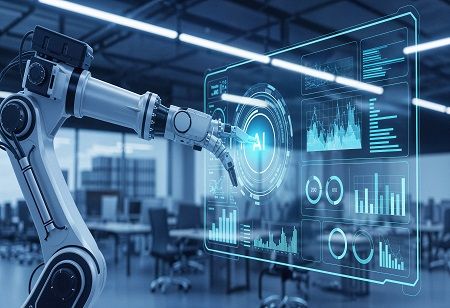
- BCCP supports PH’s smart manufacturing vision through trade forums.
- UK–PH collaboration focuses on innovation, R&D, and workforce upskilling.
- PEZA promotes ecozones and improved incentives for advanced industries.
The British Chamber of Commerce Philippines (BCCP) has shown significant support for the Philippines' goal to establish itself as a regional center for smart manufacturing, highlighting it as a potential opportunity for enhanced UK-Philippines economic collaboration. In line with the UK's Modern Industrial Strategy, this vision creates fresh chances to enhance trade, innovation, and investment between the two nations.
BCCP Executive Vice Chair Chris Nelson emphasized these opportunities at the 6th edition of the Chamber’s Trade and Connect series, “Smart, Secure, and Strategic: Building the New Age of Philippine Manufacturing.” The event came after President Ferdinand Marcos Jr.’s initiative to establish the country as a smart manufacturing center via digital transformation, focused on improving productivity, efficiency, and global competitiveness.
“We are very pleased to have representatives from PEZA, BCDA, and one of our platinum members, PMFTC. This reinforces the Philippines’ capability to present itself as a regional hub for smart manufacturing,” Nelson said. “As I have discussed with PEZA Director General Panga, upskilling the workforce and enacting cybersecurity legislation are vital. We need secure companies, a competitive workforce, and the right environment to attract investment.”
The Chamber’s support was also evident at the Philippine-British Investment Forum in London on 27 June 2025, organized by the Philippine Economic Zone Authority (PEZA) in collaboration with the BCCP. The forum highlighted manufacturing prospects in ecozones, which, as of December 2024, total 427 across the country, featuring 4,382 locator firms—79 of those in manufacturing.
Also Read: China Pledges Financial Boost for Advanced Manufacturing Expansion
Advanced manufacturing is recognized as a key sector, exhibiting significant growth potential in automotive and electric vehicles, pharmaceuticals and medical devices, aerospace, as well as electronics and semiconductors. PEZA is pushing better fiscal incentives for Tier 3 projects in research and development, artificial intelligence, cybersecurity and data centres, along with work force upskilling, localization, and the foreign promotion of Filipinx talent.
This is similar to the UK's Modern Industrial Strategy, which focused on 8 what's listed as sectors such as Advanced Manufacturing, Creative Industries, Life Sciences, Clean energy, Defence, Digital and Technologies, Professional and Business Services and Financial Services. The UK announced £4.3bn for funding and R&D support for innovation and digitization that includes £2.8bn funded over the next 5 years.
“We know the Philippine workforce is skilled, but we must elevate those skills to stay competitive. At the same time, we must make it easier for companies to set up and thrive here,” Nelson emphasized.

